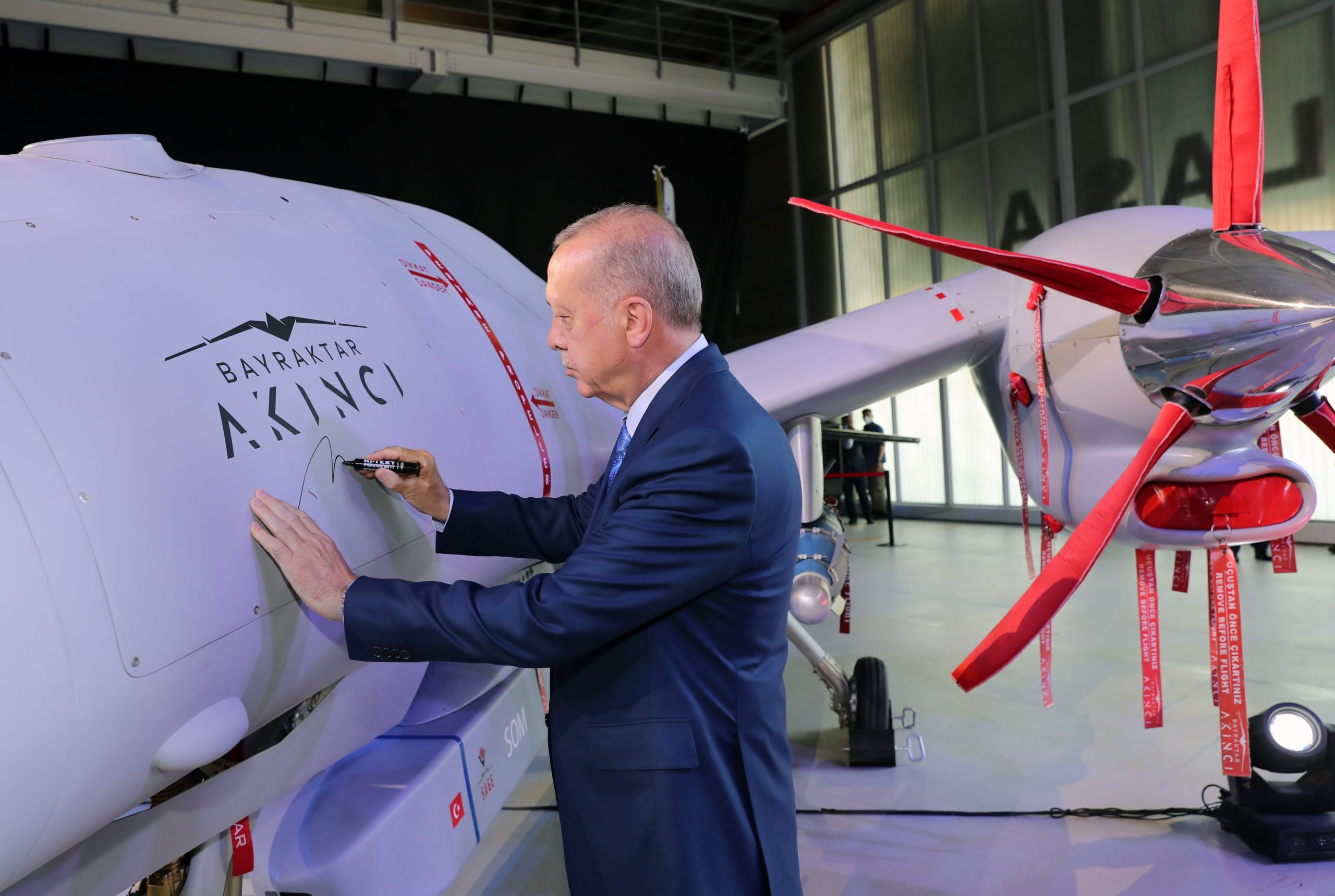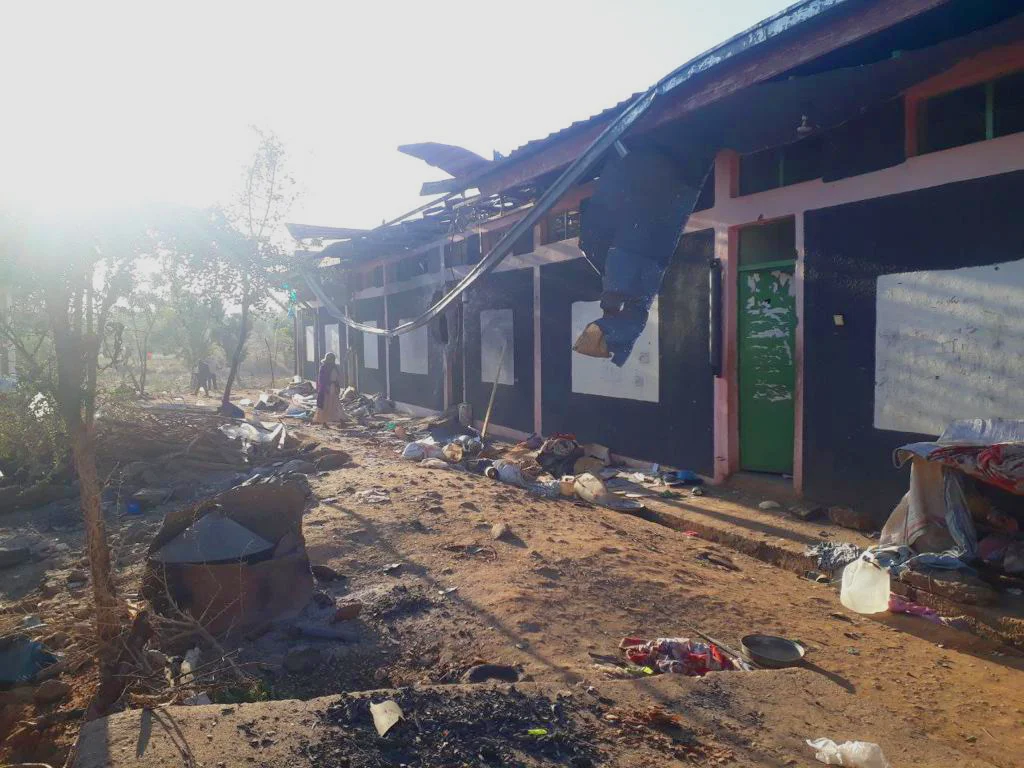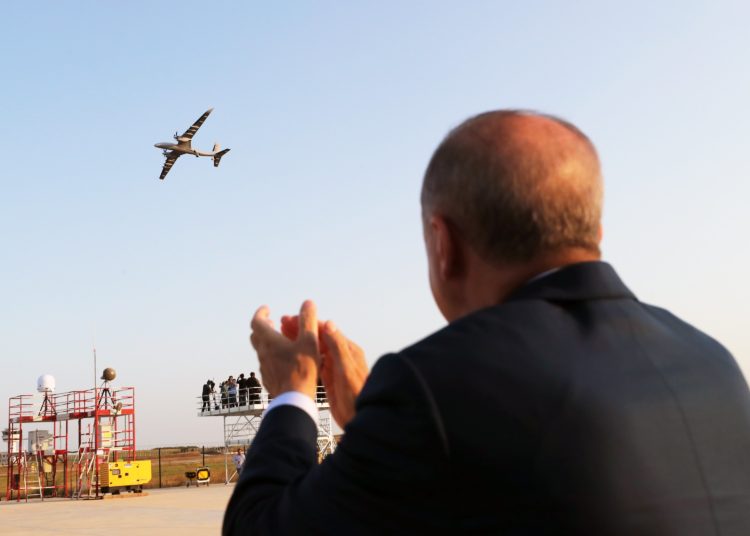Levent Kenez/Stockholm
It’s no secret that Turkish President Recep Tayyip Erdoğan has been using Turkish-made military drones as an instrument in foreign policy for some time now, presenting African and Middle Eastern countries in particular with lucrative and win-win offers that not only make money for the family business but also strengthen his hand against his opponents in exile.
Most recently, Turkish company Baykar Makina, which produces Bayraktar unmanned combat aerial vehicles (UCAVs), is reported to have delivered 20 combat drones to the United Arab Emirates (UAE) earlier this month and it could sell more.
Considering that the poor relations between Turkey and the UAE have recently improved, Turkey must have exerted significant effort to have sold the emirates 20 military drones. The Baykar company, which also produces drones for Ukraine, a country at war, reported in August that they were too busy to accept orders for the next three years. These drones should be seen as a gesture by Erdoğan, who visited Dubai in February and signed a series of agreements including cooperation in the defense industry, to show his goodwill.
Of course, this goodwill is not one-sided. The UAE is home to one dissident whom Erdoğan wants to silence. Sedat Peker, Erdoğan’s former ally and convicted mafia boss, has been living in Dubai since May 2021. He revealed scandalous information on corruption, weapons sent by the government to jihadists in Syria and ruling party relations with drug gangs in the videos he started to post on YouTube in 2021. Ankara increased its pressure on Dubai after Peker announced he would target Erdoğan directly and reveal two months before the elections in Turkey the dark deeds he carried out on Erdoğan’s orders. According to his associates, the UAE authorities forbade Peker from using social media. They informed him that if he tweeted or even liked a post on Twitter, he would be deported.
This is not the first time Turkey has used drones to silence Peker. In May 2021 he claimed that the Turkish government had donated military drones to Morocco and submitted a low-ball offer for additional units on the condition that he be extradited during his very short stay in Morocco. Peker said a flight he was to about board to depart Morocco was canceled moments before takeoff, but he managed to leave for the United Arab Emirates without disclosing how he had been able to accomplish that.

Nordic Monitor has learned that Erdoğan offered Turkish-made drones at an attractive price in exchange for the transfer of schools run by members of the Gülen movement, a group that is critical of the government, to the Turkish state-backed jihadist Maarif Foundation, and the extradition of Gülenists to Turkey. Nordic Monitor has confirmed that Chad, Burkina Faso and Niger have accepted Erdoğan’s offer so far.
A source who did not reveal his name for security reasons told Nordic Monitor that Erdoğan markets not only drones but also other defense products to African leaders, and businessmen close to these leaders are buying real estate in Turkey. He implies that commissions on these sales are offered to the leaders.
According to Nordic Monitor’s research, Ethiopia is another country where Turkey has allegedly sold drones in exchange for the transfer of schools to Maarif.
Turkish-Ethiopian military relations came to the international agenda after the Ethiopian army on January 7 hit a primary school filled with children, women and elderly men with drones bought from Turkey. At least 59 civilians were killed and dozens more were injured. Up until that time, Turkey was not known to have sold drones to Ethiopia. Weapons remnants recovered from the site were determined to be MAM-L (smart micro munition) guided bombs produced by Turkey’s Roketsan and paired exclusively with Turkish-made Bayraktar drones.

According to the Military Framework Agreement between Turkey and Ethiopia signed on August 18, 2021, one of a series of agreements signed during Ethiopian Prime Minister Abiy Ahmed’s official visit to Ankara last year, Ethiopian officers will be able to receive training at Turkish military schools and combat training in Turkish military units, and Turkish officers will train their Ethiopian counterparts at their military posts. In addition, the two countries will be able to hold joint military exercises.
Eleven schools attended by 2,000 Ethiopian students were transferred by court order to the Maarif Foundation in 2021.
Turkish President Erdoğan, his family members and his business associates benefit immensely from defense industry and military goods sales. Selçuk Bayraktar, one of the owners of Baykar, is Erdoğan’s son-in-law, and his company not only takes advantage of all state facilities but also earns high profits in the local and international markets with the sale of weapons, for which the only decision maker is his father-in-law.
An important factor for the success of Turkey’s initiatives to increase defense exports in recent years, also called “drone diplomacy,” lies in Turkey’s concentration on commercial targets rather than how and against whom these weapons are used. Turkey does not have a long export approval process for defense products, either, unlike the US and the European Union.












